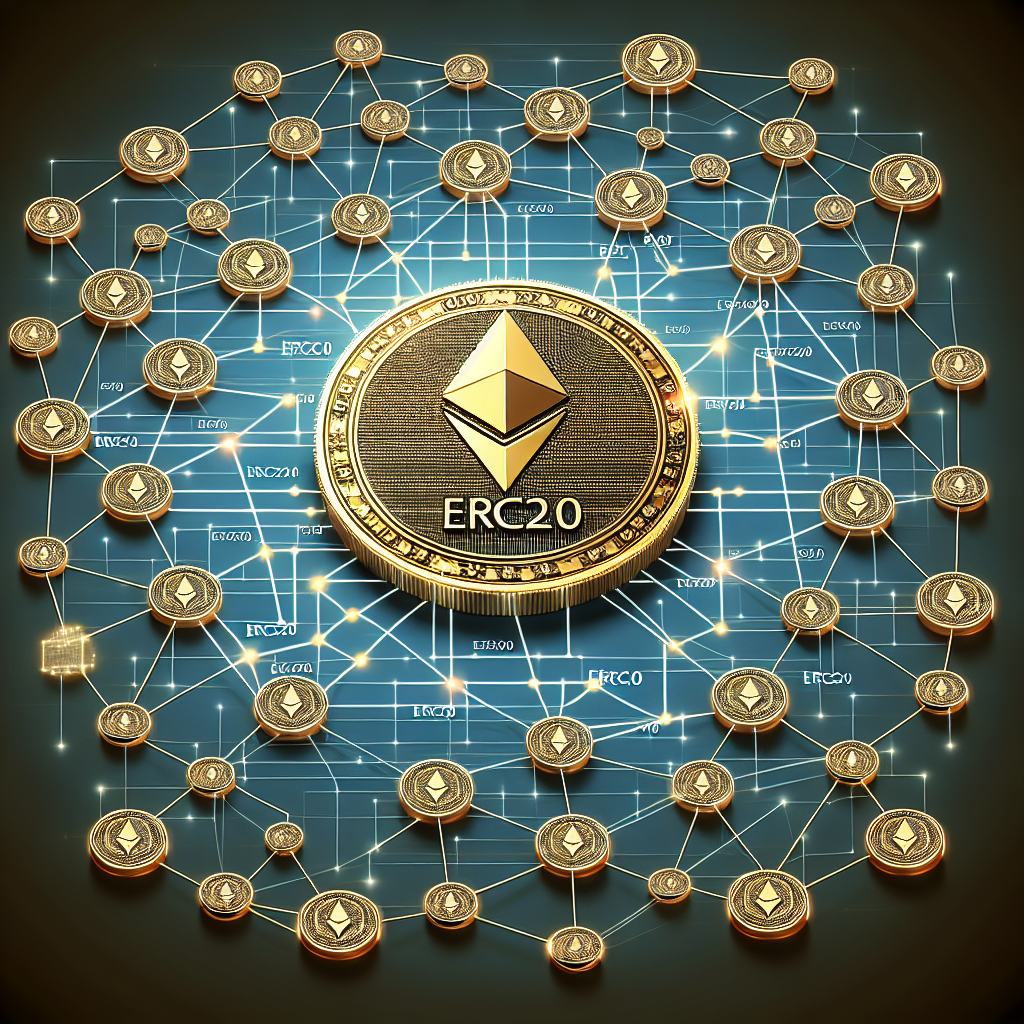Understanding ERC20 Tokens - the Backbone of Fungible Tokens on Ethereum

In the world of blockchain and cryptocurrencies, tokens play a crucial role in representing various assets and functionalities. One popular type of token is the ERC20 token, which has gained significant traction due to its compatibility and standardization on the Ethereum blockchain. In this blog post, we will delve into the details of ERC20 tokens, their significance, and why they have become a cornerstone of the blockchain ecosystem.

What is an ERC20 Token?
An ERC20 token is a digital asset created by a smart contract on the Ethereum blockchain. It serves as a representation of any fungible token, meaning it is divisible and interchangeable with other tokens of the same type. Unlike unique tokens (such as non-fungible tokens or NFTs), ERC20 tokens are identical and indistinguishable from one another.
KrisFlyer to Launch the World’s First Fungible Token
To illustrate the practicality and innovation surrounding ERC20 tokens, we can look at Singapore Airlines’ frequent flyer program, KrisFlyer. They recently announced plans to launch the world’s first fungible token using the ERC20 standard. This move will allow KrisFlyer members to utilize their miles across a broader range of partners and services, enhancing the token’s liquidity and usability.
Understanding Fungibility
Fungibility refers to the interchangeability and divisibility of tokens. With ERC20 tokens, each token holds the same value as any other token of the same type. For instance, if you own 10 ERC20 tokens, they can be divided into smaller fractions or traded for other tokens without any loss of value. This characteristic makes ERC20 tokens highly tradable and versatile within the blockchain ecosystem.
The Role of ERC20 Token Smart Contracts
ERC20 tokens are created through smart contracts deployed on the Ethereum blockchain. These smart contracts define the rules and functionality of the tokens, facilitating their issuance, management, and transfer. By leveraging the power of smart contracts, ERC20 tokens provide a transparent and decentralized solution for digital asset representation.
The Importance of Token Standards
While it may seem feasible for anyone to create tokens on Ethereum using smart contracts, adhering to a token standard is crucial for ensuring interoperability. Without a common standard, each token would require customized code, resulting in complexity and inefficiency. The ERC20 token standard was introduced to address this issue by providing a guideline for creating fungible tokens on the Ethereum blockchain.
Exploring the ERC20 Token Standard
The “ERC” in ERC20 stands for Ethereum Request for Comments, which signifies the collaborative nature of developing standards on the Ethereum network. ERC20 defines a set of functions and events that a token smart contract must implement to be considered ERC20 compliant. These functions and events establish a common interface for all ERC20 tokens, ensuring compatibility and seamless integration with various platforms and services.
Key Functions and Events of the ERC20 Interface
To be ERC20 compliant, a smart contract must implement six functions and two events. Let’s briefly explore some of these key components:
-
totalSupply(): This function returns the total supply of ERC20 tokens in existence.
-
balanceOf(): It allows users to query the token balance of a specific account.
-
transfer(): This function enables the transfer of tokens from one account to another, provided the sender owns the tokens.
-
allowance(): Users can use this function to grant permission to another account to spend a certain number of tokens on their behalf.
-
approve(): This function is used to change the allowance granted to another account.
-
transferFrom(): It allows a designated account to transfer tokens on behalf of another account.
Additionally, ERC20 defines two events, “Transfer” and “Approval,” which provide a mechanism for external systems to track and respond to token transfers and approvals.
Example script
You can try writing and deploying the solidity code on remix IDE:
Create a new Smart Contract with code below:
pragma solidity ^0.8.13;
import "https://github.com/OpenZeppelin/openzeppelin-contracts/blob/master/contracts/token/ERC20/ERC20.sol";
contract MyERC20Token is ERC20 {
address public owner;
constructor() ERC20("victor coin", "VCOIN") {
owner = msg.sender;
}
function mintTokens(uint256 amount) external {
require(msg.sender == owner, "you are not the owener");
_mint(owner, amount);
}
}
Conclusion
ERC20 tokens have emerged as a vital component of the Ethereum ecosystem, offering fungible token representation with standardized functionality. By adhering to the ERC20 token standard, developers ensure interoperability, compatibility, and ease of integration for their tokens across a wide range of platforms and services. With the increasing adoption and innovation surrounding ERC20 tokens, they continue to play a pivotal role in the evolution of blockchain technology and decentralized finance.